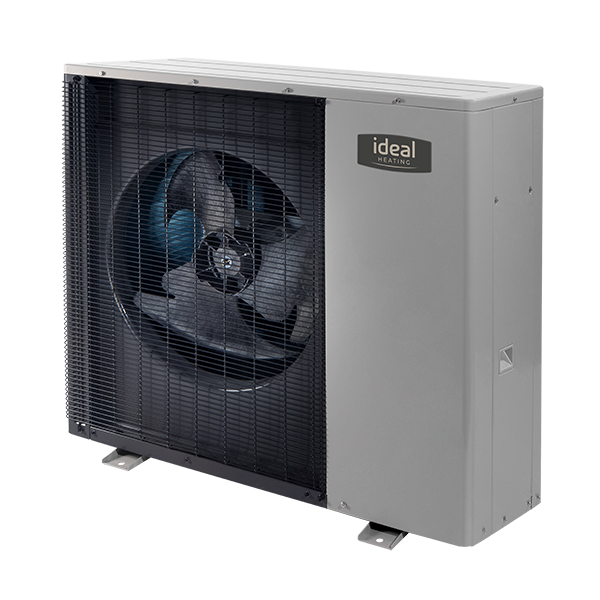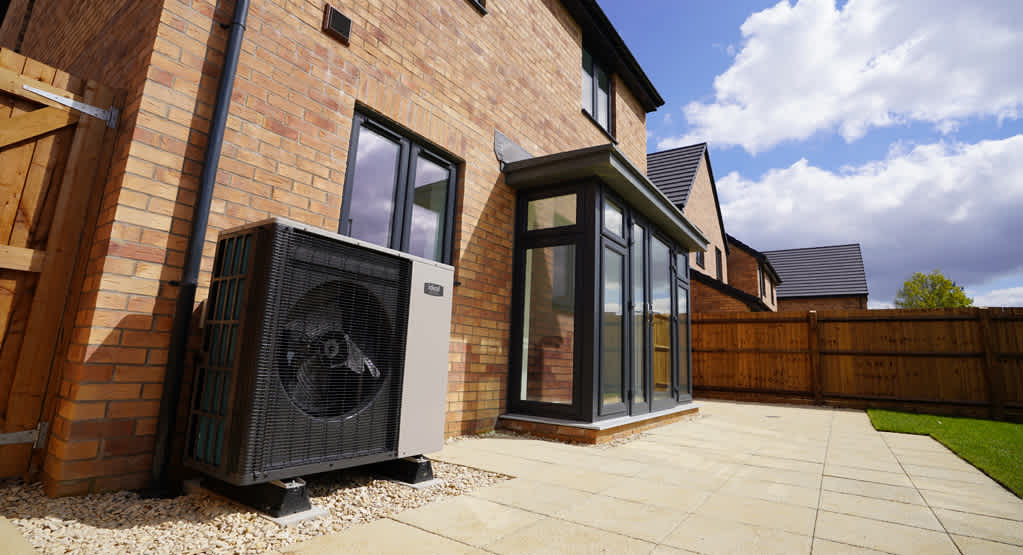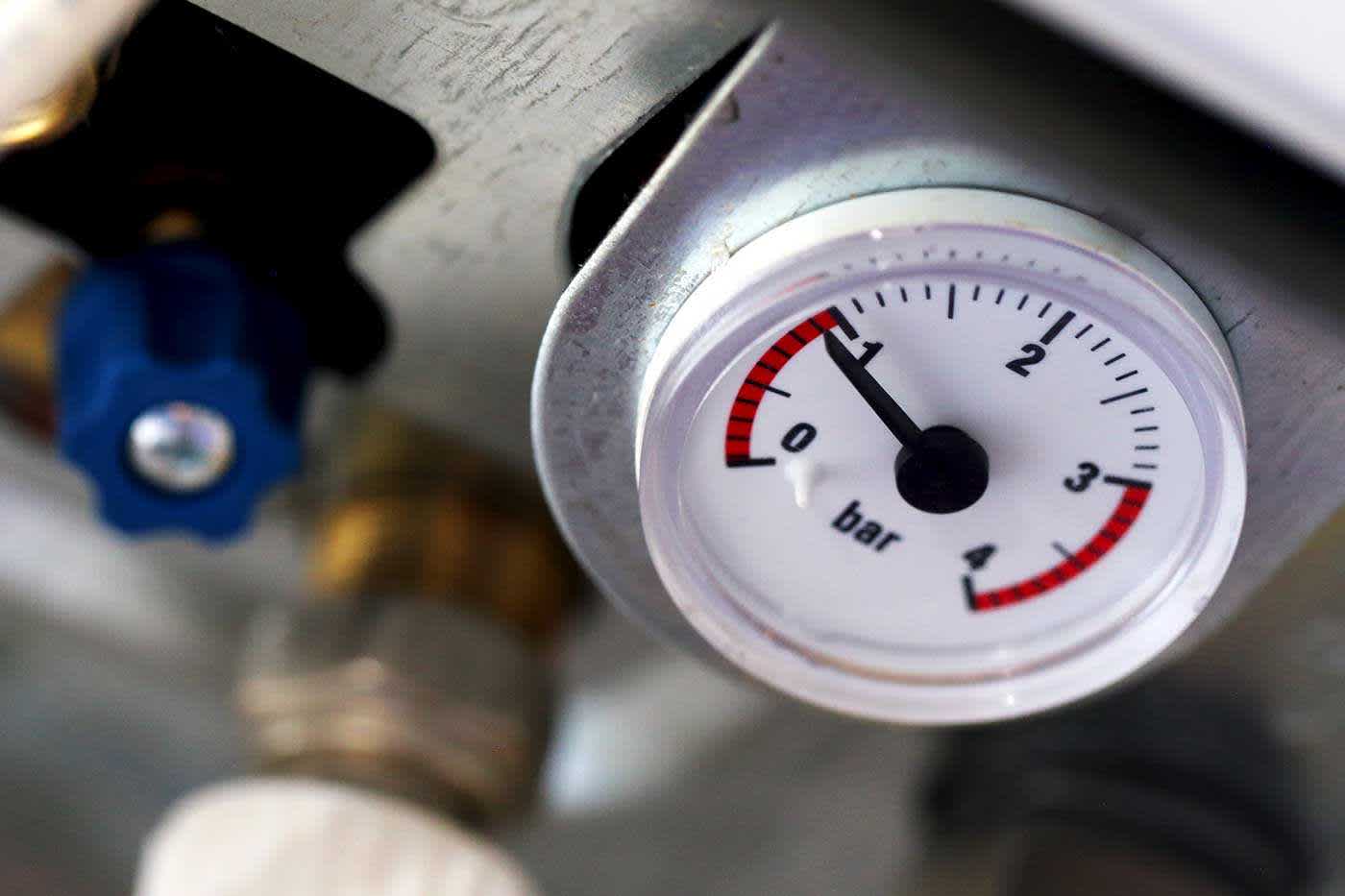
What size air source heat pump do I need?
Are you considering installing an air source heat pump (ASHP) in your home but unsure how large a unit to get? ASHPs have become an increasingly popular way to heat homes, with Microgeneration Certification Scheme (MCS) statistics showing a 25% boost in installations in 2023 versus 2022. Many more people wonder whether a heat pump is for them, particularly whether one will fit in their home.
To help you understand heat pump size requirements, our experts answer key questions below, including how to calculate the needed size, the specific sizes of the main components, why size matters, and more.
Want to learn more about heat pumps in general? Read our heat pump guide, then use our product selector below to find the ideal heat pump for your home.
What size are air source heat pumps?
ASHPs are sized in terms of their output in kilowatts (kW). Higher outputs equal a greater amount of heat generated, ready to be circulated around the home or provided as hot water.
The sizes range from 4.5kW to 16kW, with the smallest best suited for flats and small homes and the largest for big, family homes. It’s important to get the right sized heat pump for your home as if it’s too large or small, it will work inefficiently and potentially cost more to run. Learn more about heat pump costs.
You should always consult an MCS-certified installer when deciding on the size of ASHP for your home. They will make sure that yours is the correct size for your needs.
How to calculate the right heat pump size for your home
When your installer is working out the right size of ASHP, they’ll consider several factors:
Household size
The main considerations when sizing your home for a heat pump are its overall size and the number of occupants it can accommodate. The number of people living in your home will affect the hot water and heating demands placed on your ASHP system—larger households will typically require a bigger heat pump.
Home insulation and construction
If your home is more insulated or constructed with less draughty, more airtight materials (such as your walls, ceilings, flooring, and roof), then your ASHP won’t need to work as hard, and thus, you can get a smaller one. The same is true if rooms are smaller and ceilings lower.
Age and type of windows and doors
If your windows and doors are older and more weathered or constructed from less airtight materials like wood, your home will be tougher to heat, and your ASHP will need to be larger. With windows, a greater number of glazing layers equals a more draught-proof home and a smaller ASHP as a result.
Ventilation and draughts
If your home is draughtier and more well-ventilated, or features open fireplaces, your ASHP will need to be larger and more powerful to compensate.
Location
Where your home is located matters when selecting an ASHP. Factors like location and altitude affect winter outdoor temperatures, exposure affects heat loss rates.
Central heating capacity
The combined capacity of radiators, pipes and underfloor heating also matters when choosing the right-sized heat pump. More, larger radiators, pipe networks and underfloor heating systems call for a higher kW rating.
What are the dimensions of heat pump components?
Unsure if your home has enough physical room for your ASHP system? Your installer will be able to work out the right sizes for your home, but here are some dimensions, bearing in mind that sizes can differ depending on the model:
Heat pump unit size - Height 1-1.5m x Width 0.5-1m x Depth 0.5-1m
Hot water cylinder size - Height 1.5-2.5m x Width 0.5-1m x Depth 0.5-1m
Buffer tank size (non-integrated) - Height 1-1.5m x Width 0.5-1m x Depth 0.5-1m
Want to know the exact dimensions of the Ideal heat pump best suited to your home?
Why does air source heat pump size matter?
Choosing the right size ASHP is very important for several reasons:
Efficiency: A correctly sized pump will operate more efficiently, reducing energy costs. If it’s too large, you’ll be paying for a greater output than you need.
Comfort: Proper sizing ensures consistent indoor temperatures and adequate hot water supply. If it’s too small, you won’t get the output you need, leaving you with cold tap water and a chilly home.
Longevity: An appropriately sized pump will have a longer lifespan and require less maintenance. If it’s too small, it’ll be placed under stress to provide the output your home needs, which can place components under additional pressure, damaging them.
Choosing the right air source heat pump is important - too large or small and you won’t get the same heating and hot water benefits as conventional heating. Unsure which size is right for you? Find a heat pump with our product selector, then find an installer near you.
Frequently asked questions
How do I size radiators for my air source heat pump?
When transitioning to an ASHP system from a gas boiler, you may need to increase the size of your radiators to cope with a lower flow temperature. this may mean going to a deeper radiator with more panels in some rooms - your installer will be able to advise on this when they assess your property.
That’s because the water temperature within a heat pump system (45-55°C) is lower than that of a boiler (70-80°C), so the radiator area needs to be larger to emit the same amount of heat.
Your installer will be able to take you through the adaptations needed to heat your home with an ASHP.
Does heat pump size impact efficiency and running costs?
Yes, if your ASHP system is too large, you will pay more and generate more heat than you need. If it’s too small, your running costs and efficiency might initially be lower, but the excess pressure placed on the system may result in you needing to replace it much sooner than if you had installed the correct size for your home.
Is it better for the heat pump to be too large or too small?
Both undersized and oversized heat pumps will likely lead to problems, inefficiency and excess costs. As such, getting an installer to assess your property and requirements is crucial before you choose a system.

















